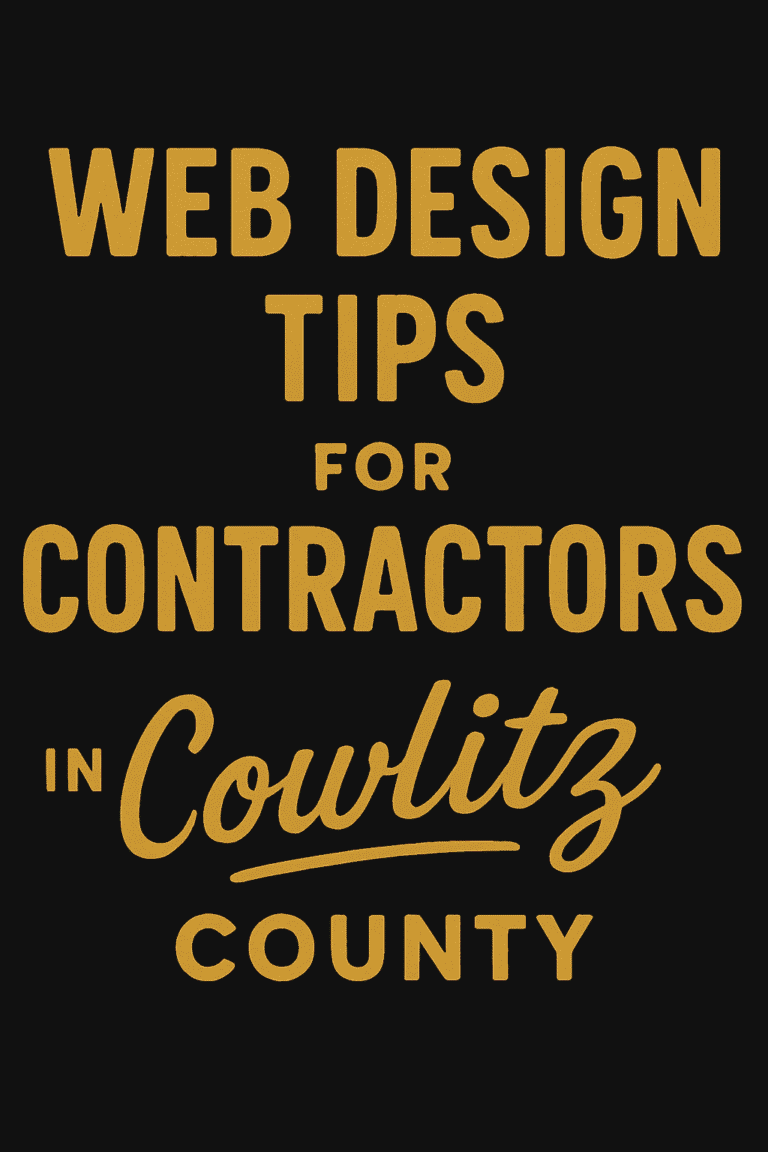
The power of Search Engine Optimization (SEO) today cannot be overstated. As the bedrock of digital marketing, SEO is the pivotal force that propels websites to the forefront of search engine results, connecting businesses with their target audience. But achieving top rankings in search results is not just a matter of chance; it requires a meticulous strategy and expert execution. This is where web design agencies step in, wielding their expertise to sculpt websites that are not only aesthetically pleasing but also finely tuned for search engine success.
However, how can you be sure that your web design agency is keeping pace? Are their strategies lifting your site’s rankings, or is there a missing piece in the puzzle? In this post, we will delve into the essentials of SEO, explore how to assess your agency’s effectiveness, and provide you with the tools to ensure your website isn’t just another drop in the digital ocean but a beacon of online success. Whether you’re a seasoned marketer or new, this guide will equip you with the insights needed to gauge and enhance your website’s SEO performance, ensuring your investment in a web design agency is not just a cost but a catalyst for growth.
II. Understanding SEO Basics
Definition and Significance of SEO
SEO, or Search Engine Optimization, is a complex yet essential process of optimizing your website to increase its visibility in search engine results pages (SERPs). This technique is crucial because it helps drive organic (non-paid) traffic to your site, which is often more sustainable and credible than traffic from paid advertising. In the digital age, a robust online presence is indispensable, and SEO is the key to achieving this. It’s not just about being seen; it’s about being recognized as a relevant, authoritative source in your industry or niche.
Key Components of SEO: On-Page, Off-Page, and Technical SEO
- On-Page SEO: This aspect focuses on the content on your site and how well it’s optimized for both users and search engines. It includes keyword optimization, content quality, meta tags, and URL structure. The goal is to create content that’s not only rich in quality and relevant keywords but also delivers a great user experience.
- Off-Page SEO: This involves external factors that impact your site’s ranking. The primary component here is backlinks – links from other websites to yours. These are crucial as they act like votes of confidence from one site to another, signaling to search engines that your content is valuable and worth ranking higher.
- Technical SEO: This refers to the technical aspects of your website that affect its visibility in search engines. It includes website speed, mobile responsiveness, structured data, and crawlability. Technical SEO ensures that search engines can easily crawl and index your website without any hurdles.
How SEO Drives Traffic and Engagement
SEO is not just about driving any traffic to your site; it’s about attracting the right traffic. When your website ranks higher for relevant keywords, it becomes more visible to your target audience. This visibility leads to increased traffic, which, if your website is optimized correctly, should translate into higher engagement. Engagement can mean various things, including longer time spent on your site, lower bounce rates, and higher conversion rates. Essentially, good SEO practices ensure that your website not only attracts visitors but engages and converts them, aligning with your business goals.
Indicators of Strong SEO Performance
Increased Organic Traffic and Search Rankings One of the most tangible indicators of effective SEO is an increase in organic traffic. This means more visitors are finding your website through search engines without the aid of paid advertising. A corresponding improvement in search rankings for your target keywords is also a key indicator. Higher rankings typically result in more visibility, which should translate into more traffic. Monitoring your site’s position in SERPs for specific keywords can give you a clear idea of how well your SEO strategies are performing.
High-Quality Backlink Profile
The quality and quantity of backlinks pointing to your website significantly impact your SEO success. A strong backlink profile with links from reputable, relevant sites is a vote of confidence in the eyes of search engines, leading to better rankings. However, it’s not just about the number of backlinks; their quality matters immensely. Links from authoritative websites in your industry or niche are far more valuable than numerous links from irrelevant or low-quality sources.
Improved User Engagement Metrics
SEO isn’t just about attracting visitors; it’s about keeping them engaged. Key user engagement metrics include the bounce rate (the percentage of visitors who leave after viewing only one page) and session duration (how long visitors stay on your site). Improvements in these areas often indicate that your content is relevant and engaging to your audience, which search engines favor. A lower bounce rate and longer session durations suggest that visitors find your site useful and are more likely to explore it further.
Keyword Optimization and Content Relevance
Effective keyword optimization is a hallmark of good SEO. This doesn’t mean cramming your content with keywords; instead, it involves strategically using relevant keywords in your content, titles, and meta descriptions. The relevance of your content to these keywords is just as crucial. Search engines have become adept at understanding the intent behind searches, so your content needs to address the needs and questions of your audience effectively. Regularly updating your content to keep it fresh and relevant is also a key part of maintaining strong SEO performance.
Evaluating Your Web Design Agency’s SEO Strategies
Agency’s Approach to On-Page Optimization
- Content: Assess how the agency crafts and structures the content on your site. Is it relevant, engaging, and updated regularly? Does it effectively incorporate target keywords without sacrificing readability?
- Meta Tags: Examine the use of title tags and meta descriptions. Are they enticing and informative, accurately reflecting the content of each page? They should include targeted keywords while also compelling users to click through from search results.
- URLs: Check the structure of your website’s URLs. Are they clean, concise, and user-friendly? A well-structured URL should be easy to read and include relevant keywords.
Technical SEO Aspects
- Site Speed: Speed is a critical factor in user experience and SEO. Analyze how well your agency has optimized your site’s loading time. A slow-loading site can negatively impact rankings and user satisfaction.
- Mobile-Friendliness: With the increasing use of mobile devices for web browsing, your site must be mobile-responsive. Evaluate how well your site adapts to different screen sizes and devices.
- Structured Data: Check if your agency is utilizing structured data (schema markup) to enhance your website’s visibility in search results. This can include rich snippets, which add extra information to search listings and improve click-through rates.
Off-Page SEO Tactics
- Link-Building: Investigate the agency’s approach to building backlinks. Are they focusing on quality over quantity, seeking links from reputable, relevant websites?
- Social Media Integration: Look at how your website is integrated with social media. Effective use of social media can boost your site’s visibility and help with link-building efforts.
Use of Analytics and Reporting Tools for Performance Tracking
- Analytics: Ensure your agency is leveraging tools like Google Analytics to track website traffic and user behavior. This data is crucial for understanding the effectiveness of their SEO strategies.
- Reporting: Evaluate the frequency and detail of the reports you receive from your agency. Comprehensive reports should provide insights into traffic, keyword rankings, backlink profiles, and other key metrics. Regular reporting helps in keeping track of progress and identifying areas for improvement.
Common SEO Pitfalls and Red Flags
Overuse of Keywords (Keyword Stuffing)
Keyword stuffing is an outdated and penalized practice where keywords are excessively and unnaturally inserted into website content. This not only hampers the readability of your content but also signals to search engines that your site might be attempting to manipulate rankings. A well-optimized site uses keywords strategically and naturally within the context of valuable, user-focused content.
Neglecting Mobile Optimization
In an era where mobile browsing surpasses desktop, a non-mobile-friendly website is a significant red flag. If your website isn’t optimized for mobile devices, it not only provides a poor user experience but also suffers in search rankings, especially after Google’s mobile-first indexing update. Ensure that your agency prioritizes mobile responsiveness to cater to the vast majority of internet users.
Slow Website Loading Speeds
Website speed is a critical factor for both SEO and user experience. Slow loading times can lead to higher bounce rates and lower user engagement, negatively impacting your SEO. This issue can stem from various factors, such as unoptimized images, excessive use of scripts, or poor hosting solutions. Your agency should be proactive in optimizing site speed to ensure a smooth user experience.
Poor or Irrelevant Link-Building Strategies
The quality of backlinks is far more important than quantity. Links from irrelevant or low-quality sites can harm your website’s credibility and rankings. Beware of agencies that promise quick gains through aggressive link-building tactics. Ethical and effective link-building involves acquiring links from reputable, authoritative websites in your industry or niche. It’s a gradual process that focuses on building relationships and creating high-quality content that naturally attracts backlinks.
Conducting an Effective SEO Audit
Tools and Resources for a DIY SEO Audit
Conducting an SEO audit involves evaluating various aspects of your website to identify areas for improvement. There are several tools available that can help you with this process:
- Google Analytics: Provides insights into your website’s traffic, user behavior, and conversion data.
- Google Search Console: Offers information about your site’s search traffic, performance, and issues affecting search rankings.
- SEO audit tools like SEMrush or Ahrefs: These tools offer comprehensive features for keyword research, backlink analysis, and identifying technical SEO issues.
- Page speed tools like Google PageSpeed Insights: Helps analyze the loading speed of your website and suggests optimization measures.
Key Metrics to Focus on During the Audit
When conducting an SEO audit, pay attention to the following key metrics:
- Organic Search Traffic: Evaluate the volume of traffic coming from organic searches. A decline or stagnation might indicate SEO issues.
- Keyword Rankings: Check the rankings for your target keywords. Rankings can provide insight into the effectiveness of your content and keyword strategy.
- Backlink Profile: Assess the quality and quantity of backlinks. Look for any spammy or irrelevant links that could be detrimental.
- On-Page Optimization: Ensure your pages are well-optimized with relevant keywords, meta tags, and user-friendly URLs.
- Mobile Usability: Check for any mobile usability issues reported in Google Search Console.
- Page Speed: Analyze the load time of your website, as slow speeds can negatively impact user experience and rankings.
Interpreting Audit Results to Assess Agency Performance
The results of your SEO audit can provide valuable insights into your web design agency’s performance:
- If you notice improvements in organic traffic, keyword rankings, and backlink quality, it suggests that your agency’s SEO strategies are effective.
- On the other hand, issues like poor keyword rankings, a decline in organic traffic, or a high number of low-quality backlinks could indicate that your agency’s tactics need reevaluation.
- Pay special attention to any technical SEO issues, such as page speed or mobile usability problems. These are critical areas that a competent agency should manage efficiently.
- Use the audit results to have a detailed discussion with your agency. Address any concerns and ask for their plan of action to resolve identified issues.
- Remember, SEO is an ongoing process. Regular audits are essential to keep up with the evolving nature of search algorithms and to ensure continuous improvement of your website’s SEO performance.
Enhancing Your Website’s SEO
Strategies for Improving On-Page and Technical SEO
- Optimize Content: Ensure that your content is high-quality, informative, and incorporates target keywords naturally. Regularly update your site with fresh content to keep your audience engaged.
- Improve Meta Tags: Optimize title tags and meta descriptions for each page to include relevant keywords and encourage click-throughs from search results.
- Enhance Site Structure: Work on your website’s structure for better navigation and user experience. Implement a logical hierarchy and clear internal linking.
- Focus on Mobile Optimization: Ensure that your website is responsive and provides a seamless experience across all devices.
- Speed Optimization: Regularly check your site’s loading speed and implement strategies to improve it, such as compressing images and minimizing the use of heavy scripts.
Building a Sustainable Off-Page SEO Strategy
- Quality Link Building: Focus on acquiring high-quality backlinks from authoritative sources in your niche. Avoid shortcuts and prioritize relevance and credibility.
- Leverage Social Media: Use social media platforms to increase your website’s exposure, share content, and engage with your audience, indirectly aiding your SEO efforts.
- Engage in Community and Forum Participation: Establish your presence in online communities and forums relevant to your industry to build authority and potentially earn quality backlinks.
Collaborating with Your Agency for Ongoing Optimization
- Open Communication: Maintain regular communication with your agency to stay updated on SEO strategies and results.
- Provide Feedback: Share your insights and feedback with your agency, especially after analyzing audit results.
- Set Clear Goals: Work with your agency to set clear, measurable SEO goals and regularly review progress towards these objectives.
Final Thoughts
Understanding and evaluating your web design agency’s performance in SEO is crucial for your online success. Remember, effective SEO is not a one-time task but an ongoing effort that requires adaptation and refinement. The insights from your SEO audit should guide your strategies and inform your collaboration with your agency. We encourage you to take proactive steps towards improving your website’s SEO and to continuously seek ways to enhance your online presence.
Are you looking to gain a deeper understanding of your website’s SEO performance? Graticle Design offers professional SEO audits and consultations to help you identify areas of improvement and develop effective strategies. Don’t hesitate to reach out to us for expert guidance in optimizing your website’s SEO performance. Together, we can ensure that your website not only ranks higher in search results but also delivers an exceptional user experience. Contact us today.





